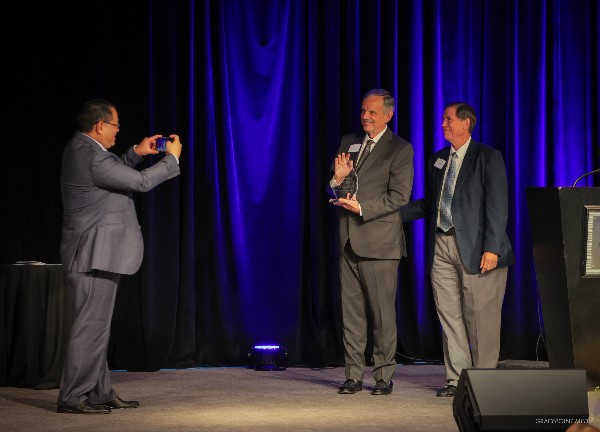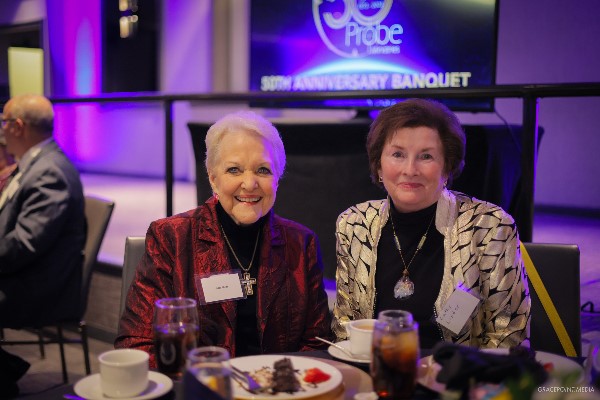The original Bible Literacy Quiz can be found here.
1. Who wrote the first four books of the New Testament?
Answer
2. Who wrote the first five books of the Old Testament?
Answer
3. What two Old Testament books are named for women?
Answer
4. What are the Ten Commandments?
Answer
5. What is the Greatest Commandment?
Answer
6. What is the second Greatest Commandment?
Answer
7. What is the Golden Rule?
Answer
8. What is the Great Commission?
Answer
9. What was the test of a prophet, to know that he was truly from God?
Answer
10. To whom did God give the 10 Commandments?
Answer
11. Which two people did not die?
Answer
12. What is the root of all kinds of evil?
Answer
13. What is the beginning of wisdom?
Answer
14. Who delivered the Sermon on the Mount?
Answer
15. How did sickness and death enter the world?
Answer
16. Who was the Roman governor who sentenced Christ to death?
Answer
17. Who are the major prophets?
Answer
18. What people group is the Old Testament about?
Answer
19. What happened while the Lord Jesus was in the desert for 40 days?
Answer
20. How many people were on Noah’s ark?
Answer
21. Who was the first murderer?
Answer
22. Which person was afflicted with terrible trials but trusted God through it all?
Answer
23. Who was Israel’s most well-known and well-loved king?
Answer
24. Who was “the weeping prophet?”
Answer
25. Who was thrown into the lion’s den?
Answer
26. Who were the two people in the famous fight with a stone and a sling?
Answer
27. What is the book of Acts about?
Answer
28. What are epistles?
Answer
29. On what occasion was the Holy Spirit given to the church?
Answer
30. Whom did God command to sacrifice his only son?
Answer
31. What was the Old Testament feast that celebrated God’s saving the firstborn of Israel the night they left Egypt?
Answer
32. Who was the Hebrew who became prime minister of Egypt?
Answer
33. Who was the Hebrew woman who became Queen of Persia?
Answer
34. Who was the pagan woman who became David’s great-grandmother?
Answer
35. Which angel appeared to Mary?
Answer
36. How did the Lord Jesus die?
Answer
37. What happened to Him three days after He died?
Answer
38. What happened to the Lord Jesus 40 days after His resurrection?
Answer
39. What should we do when we sin, in order to restore our fellowship with God?
Answer
40. How did the universe and world get here?
Answer
41. Where did Satan and the demons come from?
Answer
42. Who directed the writing of the Bible?
Answer
43. Where was the Lord Jesus before He was conceived in Mary?
Answer
44. Who taught in parables?
Answer
45. What are parables?
Answer
46. Which two animals talked with human speech?
Answer
47. With which woman did David commit adultery?
Answer
48. Which one of their sons succeeded David as king?
Answer
49. Who was the female judge of Israel?
Answer
50. Who was the wisest man in the world?
Answer
51. Who was the first man?
Answer
52. Who was the most humble man on earth?
Answer
53. Who was the strongest man on earth?
Answer
54. Where were the two nations of God’s people taken into captivity?
Answer
55. Which cupbearer to a foreign king rebuilt the wall of Jerusalem?
Answer
56. Who were the two Old Testament prophets who worked miracles?
Answer
57. Which Old Testament prophet spent three days in the belly of a great fish?
Answer
58. What is the last book of the Old Testament?
Answer
59. For which Israelite commander did the sun stand still?
Answer
60. Who was the first king of Israel?
Answer
61. Who built the temple in Israel?
Answer
62. Which of the twelve tribes of Israel served as priests?
Answer
63. Which city fell after the Israelites marched around it daily for seven days?
Answer
64. What did God give the Israelites to eat in the wilderness?
Answer
65. Which two people walked on water?
Answer
66. Who was the first martyr?
Answer
67. Who betrayed Jesus to the priests, and for how much?
Answer
68. What is the Lord’s Prayer?
Answer
69. Who was the first person to see the risen Lord?
Answer
70. Which prophet and cousin of the Lord was beheaded?
Answer
71. To what country did the young Jesus and His parents escape when Herod was threatening His life?
Answer
72. What was Christ’s first miracle?
Answer
73. Which one of the Lord’s personal friends did He raise from the dead?
Answer
74. Who was the greatest missionary of the New Testament?
Answer
75. Who was Paul’s first partner?
Answer
76. Whom did an angel release from prison?
Answer
77. Which event caused God to splinter human language into many tongues?
Answer
78. Which chapter of an Old Testament prophet’s book gives a detailed prophecy of the Messiah’s death by crucifixion?
Answer
79. Who wrestled all night with the Lord and was left with a permanent limp?
Answer
80. Which two pastors did Paul write letters to?
Answer
81. Who was hailed as a god when he was bitten by a snake but nothing bad happened?
Answer
82. Which two New Testament writers were brothers of the Lord Jesus?
Answer
83. Which two New Testament books were written by a doctor?
Answer
84. Who had a coat of many colors?
Answer
85. In what sin did Aaron lead the Israelites while his brother Moses was up on the mountain talking to God?
Answer
86. How many books are there in the entire Bible?
Answer
87. What’s the difference between John the Baptist and the John who wrote several New Testament books?
Answer
88. Who saw the Lord appear to him in a burning bush?
Answer
89. How many sons did Jacob have?
Answer
90. Who gave up his birthright for a bowl of stew?
Answer
91. Which Psalm starts out, “The Lord is my shepherd, I shall not want?”
Answer
92. Who disowned the Lord Jesus three times before a cock crowed?
Answer
93. What did the Lord do just before the Last Supper to demonstrate His love and humility?
Answer
94. Where is the New Testament “Hall of Faith?”
Answer
95. Who appeared with the Lord in glory on the Mount of Transfiguration?
Answer
96. Who is the second Adam?
Answer
97. Which Old Testament prophet married a prostitute because God told him to?
Answer
98. What are the two sacred ordinances that the Lord commanded us to observe?
Answer
99. What are supernatural enablings that allow a believer to serve the Body of Christ with ease and effectiveness?
Answer
100. Whose tomb was Christ buried in?
Answer
101. Who wrote the book of Hebrews?
Answer
102. Which is the “epistle of joy?”
Answer
103. What is the book of Revelation about?
Answer
104. Who is the bride of Christ?
Answer
Answers
1. Matthew, Mark, Luke, and John. Back
2. Most conservative scholars hold that the Pentateuch was written by Moses. Back
3. Esther and Ruth. Back
4. 1. I am the Lord your God; you shall have no other gods before Me.
2. You shall not make for yourself an idol in the form of anything in heaven above or on the earth beneath or in the waters below.
3. You shall not misuse the name of the Lord your God.
4. Remember the Sabbath day by keeping it holy.
5. Honor your father and your mother.
6. You shall not murder.
7. You shall not commit adultery.
8. You shall not steal.
9. You shall not give false testimony against your neighbor.
10. You shall not covet your neighbor’s house. You shall not covet your neighbor’s wife—or anything that belongs to your neighbor. (Exodus 20:2-17) Back
5. “Love the Lord your God with all your heart and with all your soul and with all your mind.” (Matthew 22:37,38) Back
6. “Love your neighbor as yourself.” (Matthew 22:39) Back
7. “Do unto others as you would have them do unto you.” (Matthew
7:12) Back
8. “Therefore, go and make disciples of all nations, baptizing them in the name of the Father and of the Son and of the Holy Spirit, and teaching them to obey everything I have commanded you. And surely I will be with you always, to the very end of the age.” (Matthew 28:19,20) Back
9. He had to be 100% accurate in his prophecies. The penalty for a false prophet was death by stoning. (Deuteronomy 18:20-22) Back
10. Moses. (Exodus 20) Back
11. Genesis 5:24 says that Enoch, who was Noah’s great-grandfather, “walked with God; then he was no more, because God took him away.” The other was the Old Testament prophet Elijah, who was taken up to heaven in a whirlwind with a chariot and horses of fire. (2 Kings 2:11) Back
12. The love of money. (1 Timothy 6:10) Back
13. The fear of the Lord. (Psalm 111:10) Back
14. The Lord Jesus. (Matthew 5-7) Back
15. Romans 5:12 says that sin entered the world though one man, and death through sin. The fall of man is recorded in Genesis 3, where God’s perfect creation was spoiled by Adam’s sin. Back
16. Pontius Pilate. (Matthew 27:26) Back
17. Isaiah, Jeremiah, Ezekiel, and Daniel. Back
18. The Hebrews, who became the nation of Israel. They were descendants of Abraham though Isaac. Back
19. He was tempted by the devil. (Matthew 4:1) Hebrews 4:15 tells us that He was tempted in every way, just as we are—yet was without sin. Back
20. Eight: Noah and his wife, his three sons Shem, Ham, and Japheth, and their wives. (Genesis 7:13, 1 Peter 2:5) Back
21. Cain, who killed his brother Abel. (Genesis 4:8) Back
22. Job. (See book of Job) Back
23. David. (1 Chronicles 29:28) Back
24. Jeremiah. Back
25. Daniel. (Daniel 6) Back
26. David and Goliath. (1 Samuel 17) Back
27. The early years of the church, as the gospel begins to spread throughout the world. Back
28. Letters. Back
29. Pentecost. (Acts 2:1-4) Back
30. Abraham. (Genesis 22:2) Back
31. Passover. (Exodus 12:27) Back
32. Joseph. (Genesis 41:41) Back
33. Esther. (Esther 2:17) Back
34. Ruth. (Ruth 4:17) Back
35. Gabriel. (Luke 1:26) Back
36. He gave up His life while being crucified. (John 19:18) Back
37. He was raised from the dead. (John 20) Back
38. He ascended bodily into heaven. (Acts 1:9-11) Back
39. 1 John 1:9 tells us, “If we confess our sins, He is faithful and just to forgive us our sins, and to cleanse us from all unrighteousness.” Back
40. Genesis 1:1 tells us, “In the beginning, God created the heavens and the earth.” We are told further in Colossians 1:16 and 17 that the Lord Jesus Christ was the one who did the creating. Back
41. Satan was originally the best and the brightest angel, but he sinned in his pride, wanting to be God. Some of the angels followed him, and these “fallen angels” were cast out of heaven. (Isaiah 14, Ezekiel 28) Back
42. The Holy Spirit. (2 Timothy 3:16, 2 Peter 1:21) Back
43. In heaven. (Philippians 2:6-11, 1 Corinthians 15:49) Back
44. The Lord Jesus. (Matthew 13:3) Back
45. A short, simple story with a spiritual point. Back
46. The serpent in the Garden of Eden (Genesis 3:3) and Balaam’s donkey (Numbers 22:28) Back
47. Bathsheba. (2 Samuel 11) Back
48. Solomon. (2 Samuel 12:24) Back
49. Deborah. (Judges 4:4) Back
50. Solomon. (1 Kings 3:12) Back
51. Adam. (Genesis 2:20) Back
52. Moses. (Numbers 12:3) Back
53. Samson. (Judges 13-16) Back
54. Israel was taken into Assyria (2 Kings 17:23), and Judah into Babylon (2 Chronicles 36:20). Back
55. Nehemiah. (Nehemiah 2:5) Back
56. Elijah and Elisha. (1 Kings 17 – 2 Kings 6) Back
57. Jonah. (Jonah 1:17) Back
58. Malachi. Back
59. Joshua. (Joshua 10) Back
60. Saul. (1 Samuel 13:1) Back
61. Solomon. (1 Kings 6) Back
62. Levites. (Deuteronomy 10:8) Back
63. Jericho. (Joshua 6:20) Back
64. Manna and quail. (Exodus 16) Back
65. Jesus and Peter. (Matthew 14:29) Back
66. Stephen. (Acts 7) Back
67. Judas betrayed Him for 30 pieces of silver, the price of a slave. (Matthew 26:14-15) Back
68. Our Father, who art in heaven, hallowed be thy name. Thy kingdom come, thy will be done on earth as it is in heaven. Give us this day our daily bread, and forgive us our trespasses as we forgive those who trespass against us. And lead us not into temptation, but deliver us from evil. For thine is the kingdom and the power and the glory forever. Amen. (Matthew 6:9-13) Back
69. Mary Magdalene. (John 20:16) Back
70. John the Baptist. (John 14:10) Back
71. Egypt. (Matthew 2:13-15) Back
72. He turned water into wine at the wedding at Cana. (John 2:11) Back
73. Lazarus. (John 11) Back
74. Paul. (see book of Acts) Back
75. Barnabas. (Acts 13:2) Back
76. Peter. (Acts 12) Back
77. The building of the Tower of Babel. (Genesis 11) Back
78. Isaiah 53. Back
79. Jacob. (Genesis 32:22-32) Back
80. Timothy and Titus. Back
81. Paul. (Acts 28:5-6) Back
82. James and Jude. (Matthew 13:55) Back
83. Luke and Acts. (2 Timothy 4:11) Back
84. Joseph. (Genesis 37:3) Back
85. They made an idol in the form of a golden calf. (Exodus 32) Back
86. 66: 39 in the Old Testament, and 27 in the New Testament. Back
87. John the Baptist was a prophet who proclaimed the kingdom of God was near in preparation for his cousin Jesus’ ministry. The John who wrote the gospel of John, the epistles—1, 2 and 3 John—and Revelation, was one of the twelve apostles and one of those closest to the Lord, along with Peter and James. He called himself “the disciple whom Jesus loved.” Back
88. Moses. (Exodus 3) Back
89. Twelve. They were the ancestors of the twelve tribes of Israel. (Genesis 35:22) Back
90. Esau. (Genesis 25:33) Back
91. Psalm 23. Back
92. Peter. (Matthew 26:69-75) Back
93. He washed the disciples’ feet. (John 13:5) Back
94. Hebrews 11. Back
95. Elijah and Moses. (Mark 9:4) Back
96. The Lord Jesus Christ. (1 Corinthians 15:45-49) Back
97 Hosea. (Hosea 1:2) Back
98. Baptism (Matthew 28:19,20) and Communion, or the Lord’s Table (1 Corinthians 11:23-26). Back
99. Spiritual gifts. (Romans 12:6-8, 1 Corinthians 12, Ephesians 4:8-13, 1 Peter 4:10-11) Back
100. Joseph of Arimathea. (Matthew 27:57-60) Back
101. Nobody knows. Back
109. Philippians. Back
103. The end of the world. Back
104. The church—that is, all who have trusted Him for salvation. (Ephesians 5:25-27, Revelation 19:7-8) Back
© 2005 Probe Ministries International

 During an eclipse, the heavens declare the glory of God by allowing us to see things about the sun we wouldn’t be able to observe any other way, beautiful and gloriously resplendent. Just before totality we can see “Baily’s Beads.” Only seen during an eclipse, bright “beads” appear at the edge of the moon where the sun is shining through lunar valleys, a feature of the moon’s rugged landscape. This is followed by the “diamond ring” effect, where the brightness of the sun radiates as a thin band around the circumference of the moon, and the last moments of the sun’s visibility explode like a diamond made of pure light. After the minutes of totality, the diamond ring effect appears again on the opposite side of the moon as the first rays of the sun flare brilliantly. These sky-jewelry phenomena are so outside of mankind’s control that witnessing them stirs our spirits (even on YouTube!) with the truth of Romans 1:20—”God’s invisible qualities—his eternal power and divine nature—have been clearly seen, being understood from what has been made, so that people are without excuse.”
During an eclipse, the heavens declare the glory of God by allowing us to see things about the sun we wouldn’t be able to observe any other way, beautiful and gloriously resplendent. Just before totality we can see “Baily’s Beads.” Only seen during an eclipse, bright “beads” appear at the edge of the moon where the sun is shining through lunar valleys, a feature of the moon’s rugged landscape. This is followed by the “diamond ring” effect, where the brightness of the sun radiates as a thin band around the circumference of the moon, and the last moments of the sun’s visibility explode like a diamond made of pure light. After the minutes of totality, the diamond ring effect appears again on the opposite side of the moon as the first rays of the sun flare brilliantly. These sky-jewelry phenomena are so outside of mankind’s control that witnessing them stirs our spirits (even on YouTube!) with the truth of Romans 1:20—”God’s invisible qualities—his eternal power and divine nature—have been clearly seen, being understood from what has been made, so that people are without excuse.” A total solar eclipse offers so much more, though, than Baily’s Beads and the Diamond Ring. At the moment of totality, the pinkish arc of the sun’s chromosphere (the part of the sun’s atmosphere just above the surface) suddenly “turns on” as if an unseen hand flips a switch. I knew God is very fond of pink because of how He paints glorious sunrises and sunsets in Earth’s skies, but those fortunate enough to see a total eclipse can see how He radiates pinkness from the sun itself! The heavens declare the glory of God!
A total solar eclipse offers so much more, though, than Baily’s Beads and the Diamond Ring. At the moment of totality, the pinkish arc of the sun’s chromosphere (the part of the sun’s atmosphere just above the surface) suddenly “turns on” as if an unseen hand flips a switch. I knew God is very fond of pink because of how He paints glorious sunrises and sunsets in Earth’s skies, but those fortunate enough to see a total eclipse can see how He radiates pinkness from the sun itself! The heavens declare the glory of God! For the few minutes of totality, the naked eye can see the sun’s lovely corona (Latin for crown) streaming out from the sun. We can’t see the corona except during an eclipse because looking straight at the sun for even a few seconds causes eye damage, and because the sun’s ball of fire overwhelms the (visually) fragile corona. This is another way that an eclipse allows us to see how the heavens declare the glory of God.
For the few minutes of totality, the naked eye can see the sun’s lovely corona (Latin for crown) streaming out from the sun. We can’t see the corona except during an eclipse because looking straight at the sun for even a few seconds causes eye damage, and because the sun’s ball of fire overwhelms the (visually) fragile corona. This is another way that an eclipse allows us to see how the heavens declare the glory of God. On Nov. 4, 2023, we commemorated Probe’s 50th Anniversary with a celebration banquet at Dallas’ Renaissance Hotel. We are so very grateful for God’s goodness and supernatural enabling to serve Him this half-century by sharing biblical worldview and apologetics worldwide!
On Nov. 4, 2023, we commemorated Probe’s 50th Anniversary with a celebration banquet at Dallas’ Renaissance Hotel. We are so very grateful for God’s goodness and supernatural enabling to serve Him this half-century by sharing biblical worldview and apologetics worldwide!






 The best explanation, I think, is found in my favorite children’s book, Max Lucado’s You Are Special.
The best explanation, I think, is found in my favorite children’s book, Max Lucado’s You Are Special.